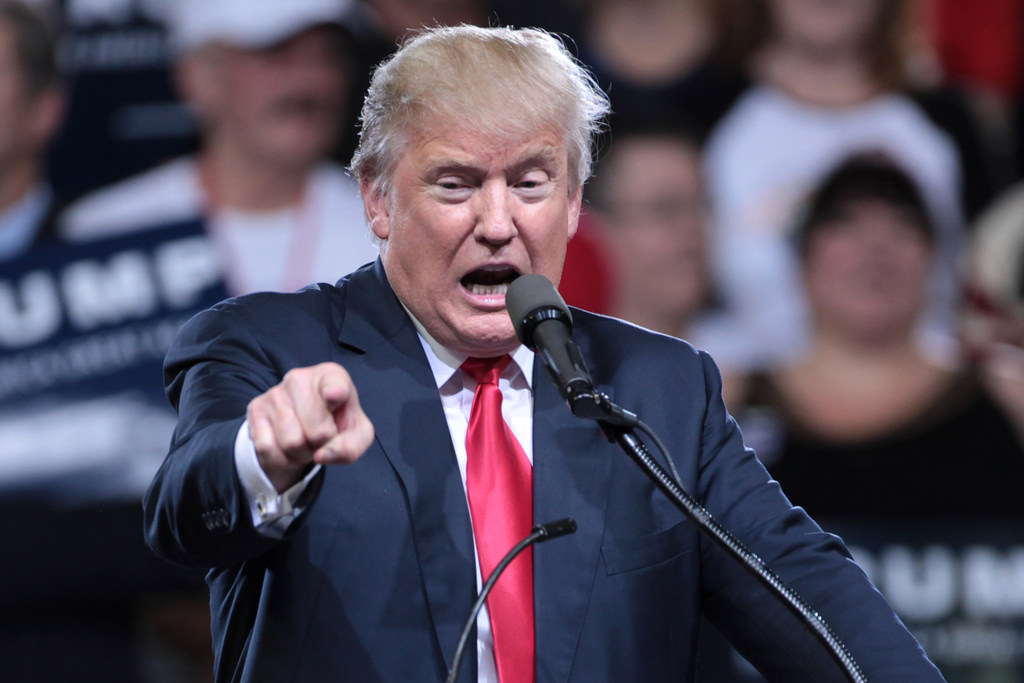The presidency of Donald Trump and has been widely – and often fairly – lambasted in the mainstream media. But that doesn’t mean that positive things can’t come out of its negative consequences.
Indeed, one good coming out of Trump’s time in politics is the pressure he has put on journalists to do better. While Trump’s calls for violence against the press and claims that they are an “enemy of the people” cannot be excused, hidden beneath his plain – albeit crass – missives are lessons that could improve the media’s democratic contributions. Take this tweet, for example:
The Fake News hates me saying that they are the Enemy of the People only because they know it’s TRUE. I am providing a great service by explaining this to the American People. They purposely cause great division & distrust. They can also cause War! They are very dangerous & sick!
— Donald J. Trump (@realDonaldTrump) August 5, 2018
Of course, much of Trump’s critique is based on the fact that he doesn’t like a press that doesn’t further his own interests. He brands stories that don’t fit his agenda #FakeNews. But some of his ideas about the media are well-founded.
First, some journalists do create division in the US – and other countries – that can lead to distrust of the media. In the UK, according to the 2018 Edelman Trust Barometer, faith in the media is now growing after a period of decline – although people are also consuming less. But it’s no time for complacency. There has long been great social distance between the US national press and large swaths of the country, and Trump’s distaste for the former reflects the frustration felt by millions of Americans – in many cases, the very same Americans who voted for him.
To them, the national news is part of an “insider politics” that ignores the daily lives of Americans and focuses on career politicians instead. And while many would argue that journalists don’t “cause war”, as Trump suggests, some certainly are known to beat the drum and even cover war as sport.
Allegiance and bias
Journalism also often suffers from an inability to admit its allegiances and bias, and a failure to thoroughly fact check articles and properly correct mistakes, deepening the distrust and playing into Trump’s #FakeNews narrative.
Second, rather than fix these divides, journalists often rally around themselves, fuelling Trump’s claims that journalists know his critiques to be “true”. As Christiane Amanpour’s interview with Jon Stewart correctly highlighted, Trump appeals “to journalists’ ‘own narcissism’ by attacking them”. Perhaps it’s no wonder they spend so much time reporting on him.
President Trump has been able to appeal to journalists’ “own narcissism” by attacking them, says Jon Stewart. “They take it personally, and now he’s changed the conversation to, not that his policies are silly or not working … it’s all about the fight.” pic.twitter.com/2N3V5NqZ6Q
— Christiane Amanpour (@camanpour) October 30, 2018
Trump leads in the self-promotion stakes, but the press is close behind. Journalistic prize culture has shaped the professional media, with some journalists developing a celebrity of their own, making themselves more important than the story. This widens the gap between the press and the people who see journalists moving in the same circles as stars and politicians, including the likes of Trump.
Third, journalism increasingly does struggle to provide “a great service” at the local level. In early November, Hearst Connecticut, which includes 20 weeklies, 29 websites, and eight daily newspapers, cut 30 staff in the US as the profitable company worked “to position our businesses for future growth”.
The Tampa Bay Times in Florida, which is owned by the Poynter Institute journalistic think tank, also announced recently the loss of 16 jobs from its newsroom. Reducing newsroom staff when journalism is needed the most fuels Trump’s claims that he – and not the press – is providing “a great service” to citizens. It also leads to news deserts where news outlets have been decimated, leaving space for information to be delivered not by reporters, but by politicians and private interests.
Making a difference
Longstanding professional journalists may not be influenced by Trump to imagine real change. But young people appear to have the will to make a difference. University journalism courses are on the rise in the US with some reporting a 50% increase in enrolments.
Indeed, in one Boston high school, students are working with renewed energy to prove they are not “enemies of the people”. As one student said:
Without the free press there would be so much alienation between us and how we get our information. We’d be a one-sided mirror blindly following orders.
Certainly, most professional journalists share that sentiment. But in the age of Trump, they now need to demonstrate it, too. And now Trump has put the spotlight on the media, everyone is watching how it responds.
 Robert E Gutsche Jr does not work for, consult, own shares in or receive funding from any company or organisation that would benefit from this article, and has disclosed no relevant affiliations beyond their academic appointment.
Robert E Gutsche Jr does not work for, consult, own shares in or receive funding from any company or organisation that would benefit from this article, and has disclosed no relevant affiliations beyond their academic appointment.



 Jack Lang Resigns as Head of Arab World Institute Amid Epstein Controversy
Jack Lang Resigns as Head of Arab World Institute Amid Epstein Controversy  JPMorgan Lifts Gold Price Forecast to $6,300 by End-2026 on Strong Central Bank and Investor Demand
JPMorgan Lifts Gold Price Forecast to $6,300 by End-2026 on Strong Central Bank and Investor Demand  Trump Allows Commercial Fishing in Protected New England Waters
Trump Allows Commercial Fishing in Protected New England Waters  Trump’s Inflation Claims Clash With Voters’ Cost-of-Living Reality
Trump’s Inflation Claims Clash With Voters’ Cost-of-Living Reality  U.S. Lawmakers to Review Unredacted Jeffrey Epstein DOJ Files Starting Monday
U.S. Lawmakers to Review Unredacted Jeffrey Epstein DOJ Files Starting Monday  TrumpRx.gov Highlights GLP-1 Drug Discounts but Offers Limited Savings for Most Americans
TrumpRx.gov Highlights GLP-1 Drug Discounts but Offers Limited Savings for Most Americans  FxWirePro- Major Crypto levels and bias summary
FxWirePro- Major Crypto levels and bias summary  China Warns US Arms Sales to Taiwan Could Disrupt Trump’s Planned Visit
China Warns US Arms Sales to Taiwan Could Disrupt Trump’s Planned Visit  TrumpRx Website Launches to Offer Discounted Prescription Drugs for Cash-Paying Americans
TrumpRx Website Launches to Offer Discounted Prescription Drugs for Cash-Paying Americans  Missouri Judge Dismisses Lawsuit Challenging Starbucks’ Diversity and Inclusion Policies
Missouri Judge Dismisses Lawsuit Challenging Starbucks’ Diversity and Inclusion Policies  U.S.-India Trade Framework Signals Major Shift in Tariffs, Energy, and Supply Chains
U.S.-India Trade Framework Signals Major Shift in Tariffs, Energy, and Supply Chains 
































